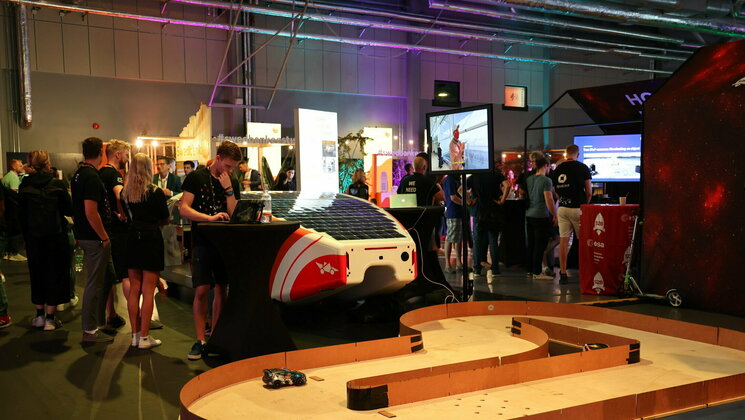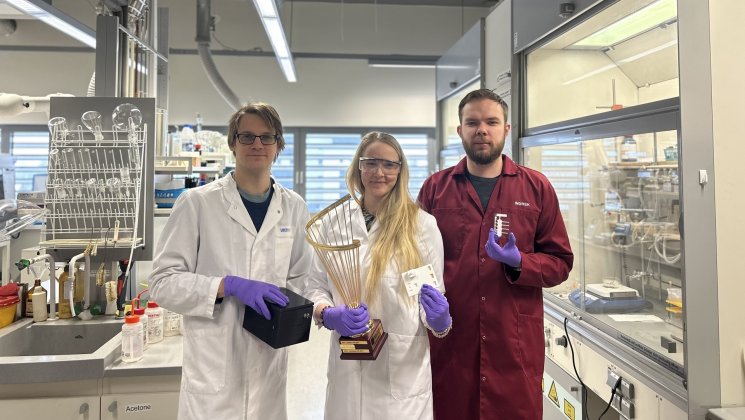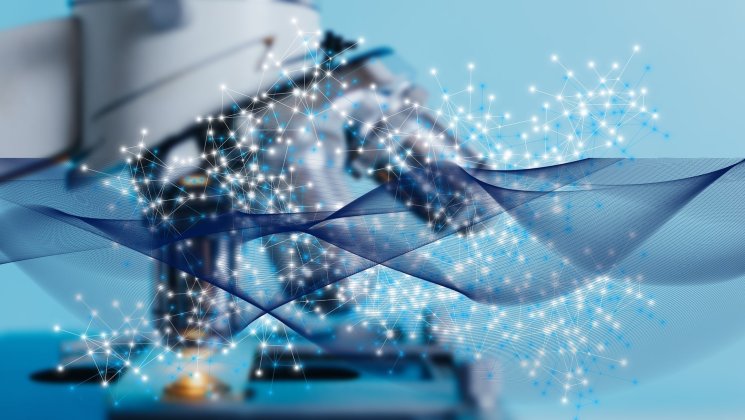A new project of sustainable biomanufacturing was launched

The research group of professor Maia Kivisaar is engaged in a new based and applied research project aimed at implementing circular economy.
The four year Horizon Europe project BIOS (The bio-intelligent DBTL cycle, a key enabler catalysing the industrial transformation towards sustainable biomanufacturing) started with a kick-off meeting at the beginning of October in Brussels.
BIOS brings together universities, research institutions and enterprises from six European countries and is led by the German University of Stuttgart. In addition to the University of Tartu, Wageningen University from the Netherlands is engaged, also French public research institute dedicated to agricultural science, Institut national de la recherche agronomique, the Fraunhofer Society as a German research organization, VTT Technical Research Centre of Finland Ltd, Ingenza Ltd from Great Britain and LifeGlimmer GmbH from Germany.
Associate Professor in Genetics Riho Teras participates in work package 4 (Biosensors and meters). He supervises the implementation of work task 4.2, where the goal is to create a vector system that would allow flexible expression of terpene anabolism genes in bacteria. By using excludon and various promoters, a self-regulating system is created due to the physiology of the bacteria. In this way, it is possible for the bacterium to reduce the load from expression under stressful conditions, which in turn ensures lower production costs.
Professor of Microbial Genetics Maia Kivisaar leads the research planned in work package 5 (Laboratory evolution and stress tolerance) related to the optimization of producer strains of the bacterium Pseudomonas putida. Genes are introduced into the producer strains, which enable the synthesis of terpenes, polyolefins or methyl acrylate in the cells. The task of Maia Kivisaar's working group is to find out the stress responses related to the synthesis of these compounds. Using laboratory evolution experiments, more stress-tolerant variants of the producer strains are isolated and characterized. Based on the information obtained, it is possible to create more effective producer strains.
The usage of fossil resources leading to increasing atmospheric CO2 levels and global climate change should be rapidly replaced by implementing circular economy.
Circular bioeconomy converting sustainable substrates in moderately operating bioprocesses offers several solutions. Synthetic biology provides a multitude of tools for strain engineering but their rapid use in hosts for optimal performance under industrial conditions is still too challenging. Promising innovations are often trapped in the ‘valley-of-death’ as strain engineering faces a too complex space of putative manipulations. Novel approaches are needed to increase speed and success rate of strain and bioprocess engineering.
The bio-intelligent approach, rigorously applied in BIOS, aims to accelerate and improve the conventional ‘design-build-testlearn’ (DBTL) cycle for strain and bioprocess engineering.
Interdisciplinary collaboration will bridge microbiology, molecular biology, biochemical engineering with informatics, automation engineering, and mechanical engineering.
Novel innovative metrics, biosensors, and bioactuators are developed for bi-directionally communication at biological-technical interfaces. Digital twins are created mimicking cellular and process levels. Integrating artificial intelligence (AI) not only improves prediction quality but also enables hybrid learning, the key reason to increase speed and success rate in the novel bio-intelligent DBTL cycle (biDBTL).
The power of biDBTL will be showcased by creating Pseudomonas putida producer strains for terpenes, polyolefines, and methylacrylate. All are highly attractive products with a high potential for reducing anthropogenic greenhouse footprint.
BIOS will open the door to a de-centralized, networked collaboration for strain and process engineering that efficiently links individual expertise for the sake of a symbiotic and rapid progress.
BIOS also paves the way to de-centralized bio-manufacturing by implementing autonomous, self-controlled bioprocesses.
The photo is taken in the kick-off meeting of the project, October 5th 2022 in Brussels.
Horizon Europe grant No 101070281, BIOS: The bio-intelligent DBTL cycle, a key enabler catalysing the industrial transformation towards sustainable biomanufacturing.
Professor Maia Kivisaar and associate professor Riho Teras from the Institute of Molecular and Cell Biology talked about the same topic in the Kuku radio program series "Kuue samba taga" (Behind the Six Pillars) on 19.12.2022.






